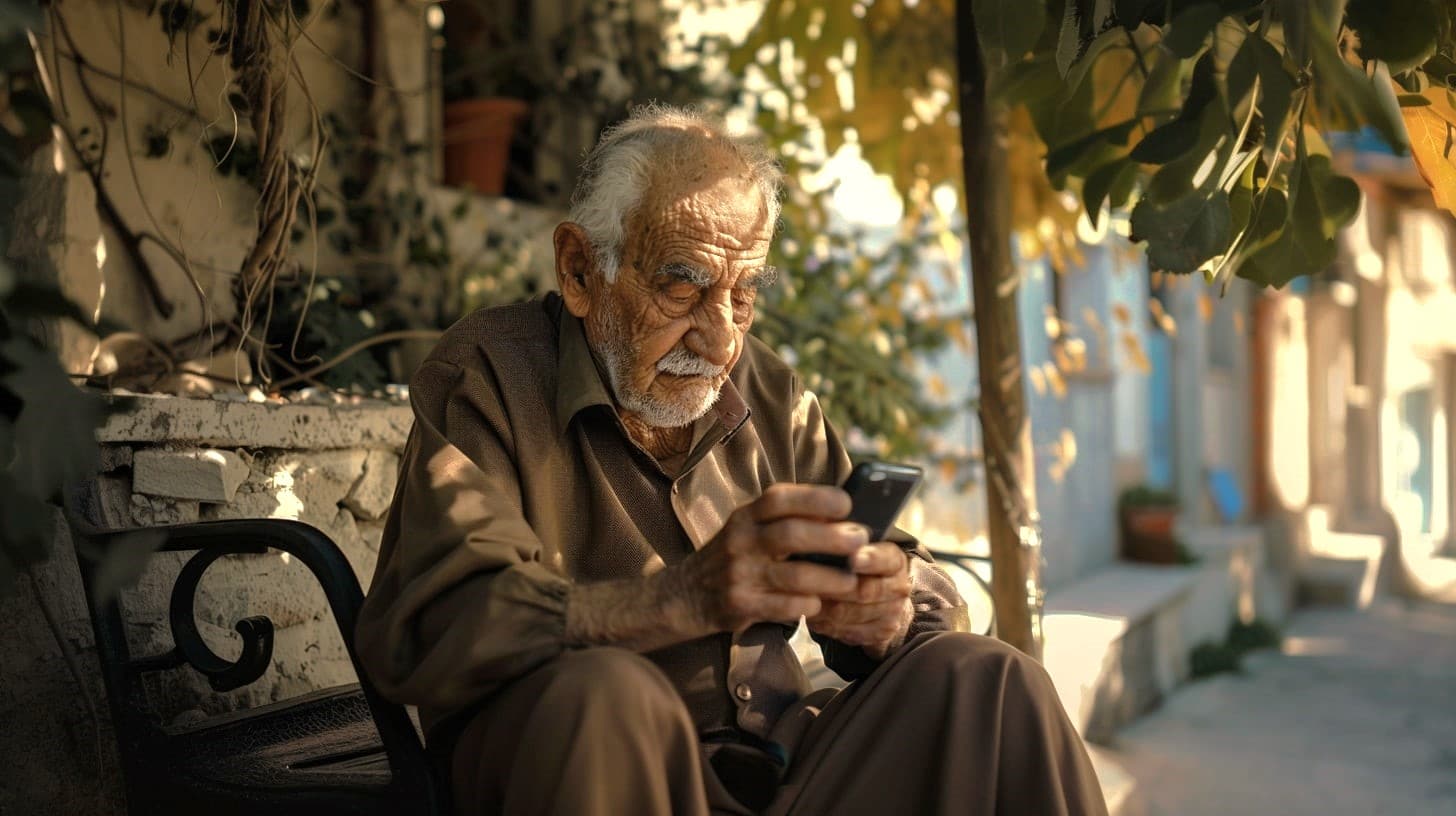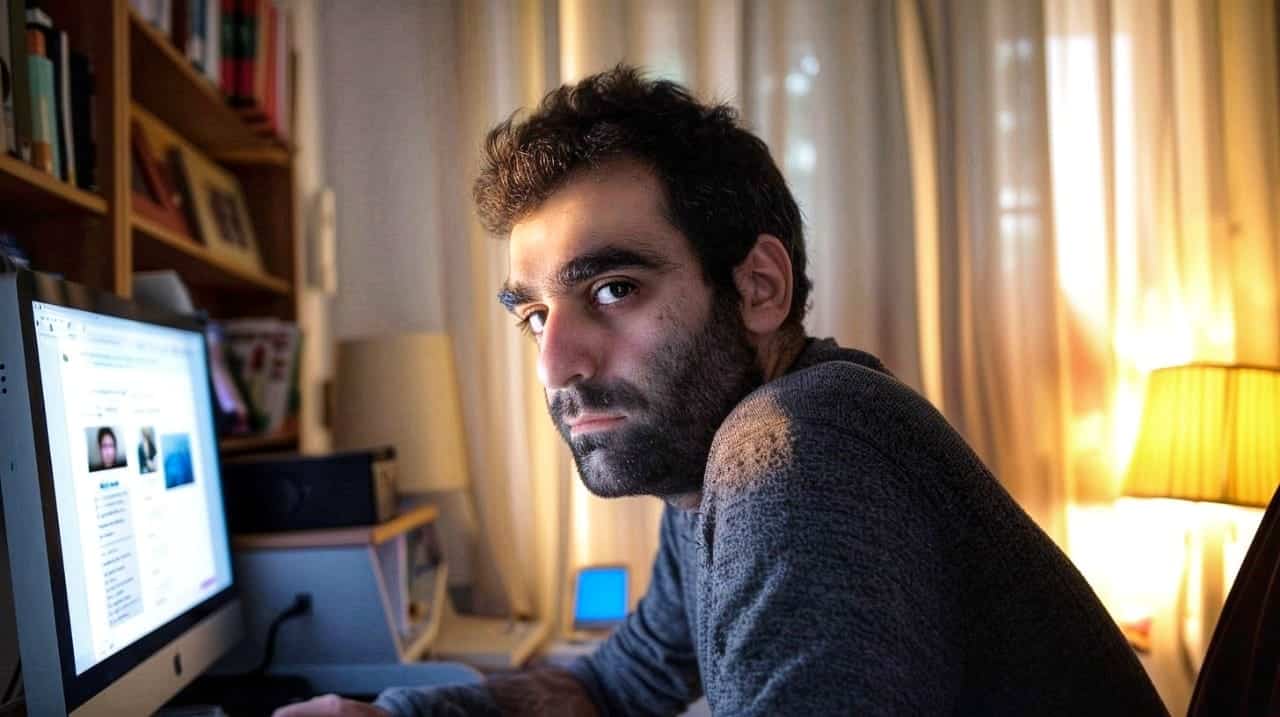‘We’ve moved out of the villages, but we still like to know what our neighbours are up to!’ ALIX NORMAN looks at what the island uses the internet for
‘After a slow start, the internet has finally become part of the social fabric in Cyprus, 42 per cent of Cypriots are logging on, mostly for an hour a day’!
Wait, what?
Let’s clarify: this quote isn’t recent. But it’s not from all that long ago, either. In fact, the data comes from an article that appeared in the Cyprus Mail just 15 years ago.
Yes, in 2009, only half of the island was online on a regular basis.
This was long before the days of Netflix and Spotify, well before we all discovered we could explore everything from cats to crochet online. In fact, what Cyprus was reading back then was fairly specific: world affairs for the most part, although a significant number of web users (nearly 25 per cent) were logging on purely to check the football results.
“I think it was 2010 when I got internet in my home,” says 52-year-old repatriated London-Cypriot, Stelios Mavrou. “And it was painfully slow compared with today! The primary reason was so I could get a bunch of English channels through Cytavision. But I also used it to check up on the sports scores in the UK – stuff you couldn’t find in the paper, like darts and snooker.
“I had Facebook, of course, but I rarely used it. Nowadays, I’m on it all the time – I’ve run charity campaigns that were dependent on social media, and it’s how I keep in touch with my friends all around the world.”
Today, according to the latest round of the European Social Survey, more than three quarters of Cyprus residents use the internet every single day (making us second only to Sweden). And we’re now online for an average of 5.5 hours every day – which gives us an increase of 450 per cent since the original article was written!

In the past, social networking took place in person
The biggest increase has come in our social media usage. Back in 2009, a mere 18 per cent of the island used Facebook. Compare that to 2024, and the jump is staggering. As of 2024, Cyprus’ social media usage is the second highest in the EU (after Denmark), with over 83 per cent of the island actively using platforms such as Facebook, Instagram, Snapchat and Tik Tok.
Given that the EU average is 59 per cent, we’re certainly a highly social nation. But then weren’t we always – even before everything went online?
“When I was growing up,” says 72-year-old Kyriaki Paraskevi, “you’d walk round the village every evening – the peripato – to see what had happened during the day. So you’d stop and chat to your neighbours sitting outside: find out what they were making for dinner; ask after the health of their father who you knew was suffering from arthritis; discover whose children had got a good grade in their exams.
“Nowadays, all that happens online. On Facebook, I can see photos of what my friends are eating, updates on their ailing relatives, posts about their kids getting into university or doing well in school. We’ve moved out of the villages, but we still like to know what our neighbours are up to!”
In 2009, the average local internet user was a 25-year-old male who enjoyed sports, gaming, and politics. Today, Cyprus’ average internet user is a highly educated 35-year-old female, who primarily goes online to communicate with friends and check her socials!
Clearly, the way Cyprus uses the internet has changed a huge amount over the last 15 years.
Skype, WhatsApp, Viber, Messenger and Facetime are now the island’s favourite online activities, closely followed by Facebook, Tiktok, Instagram and YouTube. News comes in third, while goods and services (buying that pair of Adidas Spezial you’ve had your eye on while ordering a Toronto pizza via Foody) are fourth.
Interestingly, the fifth most popular online activity in Cyprus is looking up health-related issues. Which tells us we’re either a nation of hypochondriacs or we trust Google over our doctors!
“There’s rarely a day I’m not looking up some symptom or cure,” says 45-year-old Daphne Loizou. “I have chronic fatigue, and there are very few doctors in Cyprus who can even begin to understand the condition. Most of my information comes from medical sites, the NHS portal, and social media support groups. They’ve helped me far more than any local doctor ever has.”
Emails and banking come in sixth and seventh, with job searches and job applications taking eighth (from which we can probably surmise that a great many of us are unhappy with our current employment and/or salary!).
And just ahead of Cyprus’ tenth most popular online activity (selling our own goods and services), comes a delightful category called ‘expressing opinions on civic or political issues’. No surprise there.
However, it’s not just what we’re looking at that’s changed in the last 15 years. Who’s doing the looking has also shifted dramatically as early internet adopters have grown older: today, the 30 to 55 age group use the internet just as much as the 16 to 30s. And 75 per cent of residents aged between 56 and 75 are also regularly online.

While our yiayias and pappous clearly love the internet, the older generation mostly use smartphones, and do so for connection. But the younger generations appear to spend a great deal of their online time streaming or downloading.
Films and series take top place, closely followed by music and games. Though the internet’s most prevalent online activity doesn’t get a mention either in the initial article or in more recent surveys…
Four whole months before the original online article, the Cyprus Mail ran a piece entitled ‘Cypriots most avid porn viewers in Europe’!
Apparently, 2009 data on the most viewed websites in each country showed that an unnamed porn site was the 14th most-viewed site in Cyprus – the highest ranking of a porn site in the EU. Back then, the site was more popular than Protathlima.com and Twitter!
Three other adult sites also appeared in Cypriot browsers’ top 50 back then. Given that the rest of our internet usage has jumped hugely over the last 15 years, it makes you wonder, doesn’t it?







Click here to change your cookie preferences